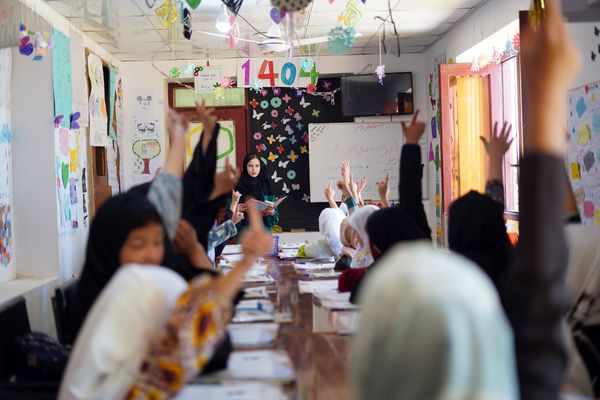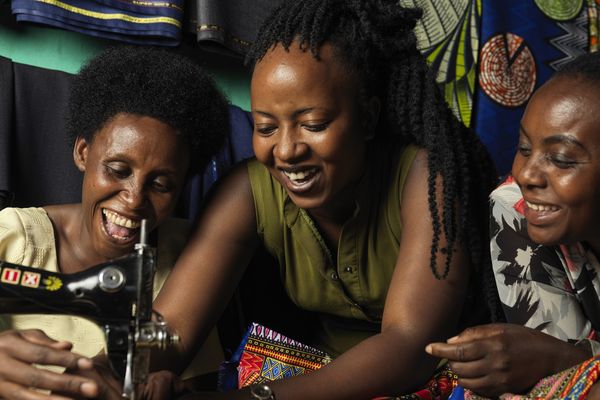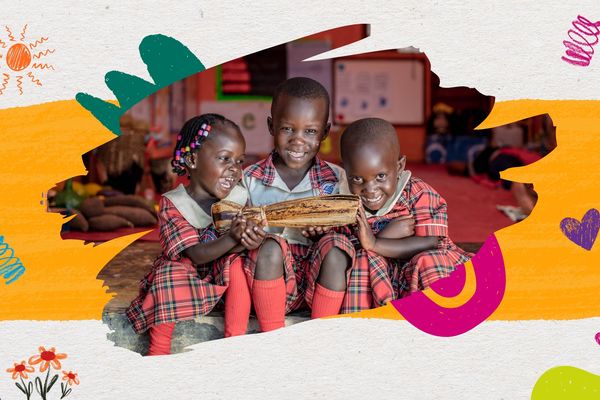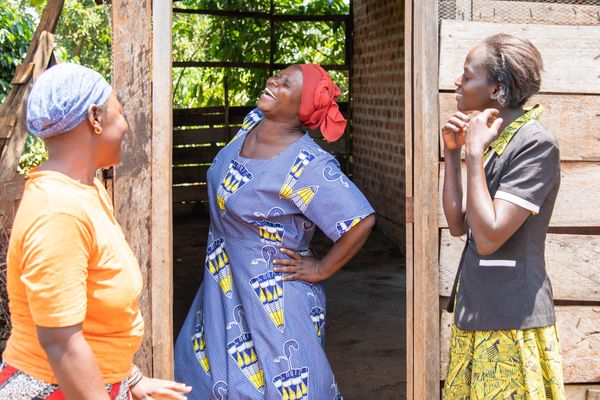“It’s like learning the future!” How girls in Afghanistan are getting a chance to enjoy learning at after-school centres
Date: 27 May 2025
This April marked a milestone for 1,900 students who graduated from BRAC’s 76 after-school learning centres—places where children continue to learn despite tremendous odds. These centres fill critical gaps where public schools are struggling, largely due to limited resources and growing barriers to access. Meanwhile, the gender divide continues to widen. According to a 2025 UN report, an estimated 1.5 million girls are already out of school. With the new school year underway, another 400,000 are expected to drop out—pushing the total number past 2 million. But beyond the numbers are real stories of resilience, of fighting systemic barriers and dreams of a better life.
Ten-year-old Adila is one of the girls pushing back against such odds. At one of BRAC’s after-school centres in Parwan in central Afghanistan, she shares her story.
Adila Umar (name changed to maintain anonymity) from Afghanistan is 10 years old now. She is from Parwan province— a region known for towering snow-capped mountains. Adila loves playing football, enjoys public speaking, and most of all, she says, she loves to learn new things.
She attends Mir Abdul Karim Maqool School, a public school in her neighbourhood. She enjoys the rhythm of classroom life, and learning from her favourite teacher.
But both at home, and at school, the learning environment has not always been welcoming for her. “Education for girls is not considered important, I always have to try extra hard,” shares Adila.
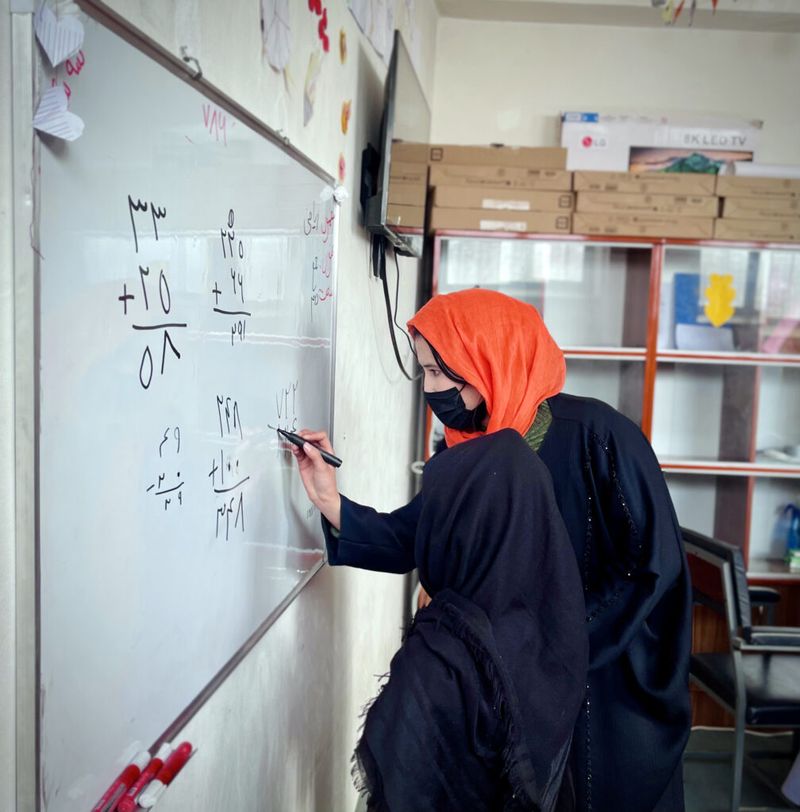
Adila is not alone. This is a broader reflection of the experience of girls her age from traditionally underserved areas across the world.
Public schools in Afghanistan suffer from a significant lack of basic infrastructure in classrooms required for quality education. Overcrowded classrooms, lack of qualified teachers are among some of the problems. In fact, only 5 out of 10 teachers hold the minimum required academic qualification. Advanced facilities such as computer labs or extracurricular activities are not even up for consideration due to severe underfunding.
For girls, there is an added layer to this inaccessibility. 2025 marks the third year of the ban on secondary education for girls. As a result, more and more girls across all levels are dropping out of school.
Currently, a total of 2.2 million girls are out of school in Afghanistan, since the ban.
But Adila hopes she won’t have to give up on education. “Things are different here. When I speak in class, people pay attention to me,” Adila says of the after-school learning centre she attends—a safe, supportive learning space under the Afghan Girls’ Education (AGE-ASLCs) project. The centre provides a better chance at primary education for children aged 7 to 15 who are still enrolled in public schools but are struggling academically. The centres operate in two shifts, allowing students to attend after regular school hours. Each batch completes a six-month curriculum before they graduate.
Introduced in 2024, these centres go beyond traditional subjects— integrating lessons in literacy, numeracy, digital literacy, psychosocial wellbeing, and life skills. It especially serves the need to support girls who are on the verge of dropping out by employing all-female, trained facilitators from the community.
At the centre, Adila studies four main subjects alongside computer literacy and life skills. “Computer skills are my favourite,” she says, “It’s like learning the future!”
Nurturing the natural curiosity of children like Adila is integral to the curriculum. Students get hands-on experience in exploring technology, engaging in group-based interactive learning that foster their leadership, communication, and teamwork skills.
Adila, sitting in her colourful classroom, shares the story of the day she was selected as the announcer for a school event— “I never thought I could speak in front of people like that. I was a little nervous at first, but it was so exciting!” she recalls.
Among the many friends Adila has at the centre, she has found a best friend in her classmate Samila (name changed to maintain anonymity). When asked about what she likes about Samila the most, she says “We help each other. We enjoy lessons together. I like how kind she is.”
At home, Adila takes on the role of being the teacher. “I try to teach my younger sister and brother what I learn at the centre. They often sit with me while I finish my assignments,” she says.
She happily adds that she helped her younger brother overcome his fear of public speaking, coaching him the way her teachers once coached her.
Adila dreams of becoming a doctor not just for the status, but to serve people in her community. She understands, even at her young age, that education is the link between the life she knows at present and the future she dreams of. “If I don’t study, I can’t help others. I want to be useful,” she explains.
“I also want to master English. Because it will help me learn more about science, medicine, and computers,” she says. “If I could be a superhero,” Adila says thoughtfully, “my power would be knowledge, the power to understand and help.”
Take a quick look into BRAC’s after-school centres.
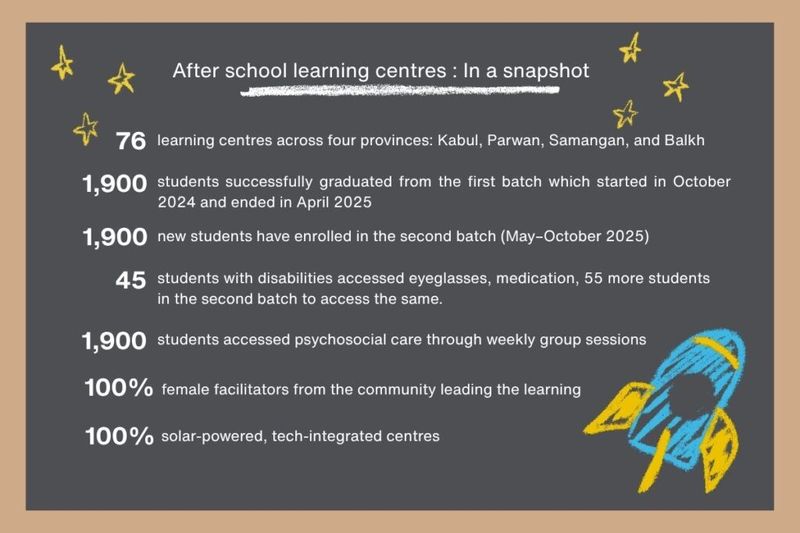
By Abdul Bari Hashmi and Syeda Tasnim Islam
Abdul Bari Hashmi is reporting and communications officer at BRAC Afghanistan. Syeda Tasnim Islam is deputy manager, content & knowledge management at BRAC International.
